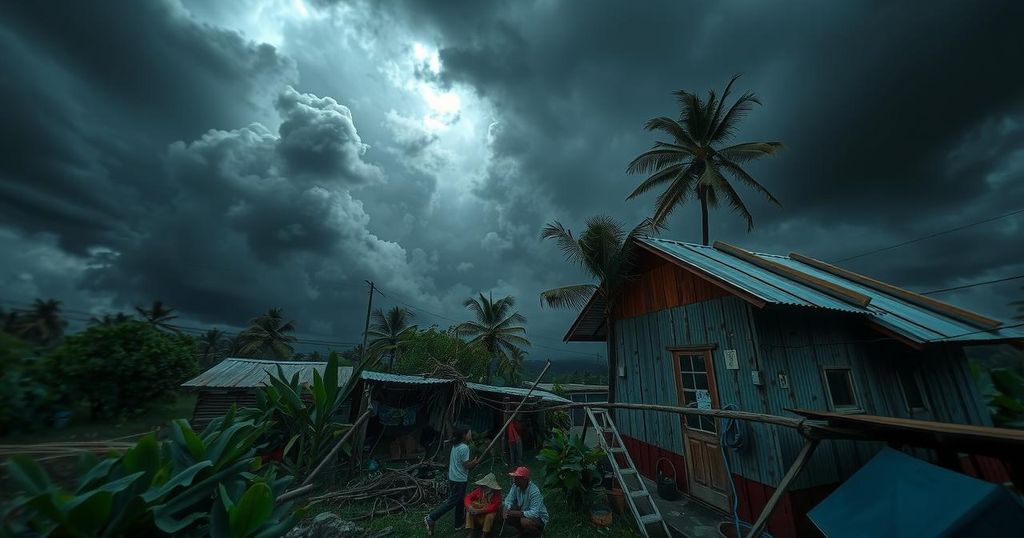Typhoon Toraji Strikes Philippines amid Ongoing Disaster Challenges
Typhoon Toraji has caused extensive flooding, power outages, and damage in northern Philippines, following a series of storms that devastated the region. As authorities clear debris to facilitate aid, a new storm threatens the area. Government and international assistance efforts are underway to support affected communities.
On a recent Tuesday, Typhoon Toraji, which has since weakened into a tropical storm after causing significant damage in northern Philippines, impacted numerous provinces by triggering floods, uprooting trees, and instigating power outages. The typhoon has contributed to the challenges faced by the region, exacerbated by consecutive storms and typhoons, primarily affecting Luzon. As the nation prepares for another storm possibly forming over the Pacific, disaster-response teams, including military and police, are actively clearing paths obstructed by fallen debris to facilitate aid distribution and rescue operations for those stranded.
The Philippines is situated in a region prone to natural disasters, frequently experiencing up to 20 typhoons annually, along with earthquakes and volcanic activity. The catastrophic impacts of these disasters are evident, as over 9 million individuals have been affected by recent weather disturbances, with significant destruction of infrastructure and agricultural regions. The government has been proactive, utilizing military and law enforcement personnel for disaster response and securing international assistance from allied nations to provide essential supplies to the afflicted regions.
In summary, Typhoon Toraji has intensified the plight of communities already suffering from prior storms in the Philippines. The ongoing response efforts underscore the urgency of addressing the needs of displaced individuals and ensuring the effective distribution of aid, as another potential storm looms on the horizon. The resilience of Filipino communities combined with government and international support remains crucial in overcoming these formidable challenges.
Original Source: www.seattletimes.com




Post Comment